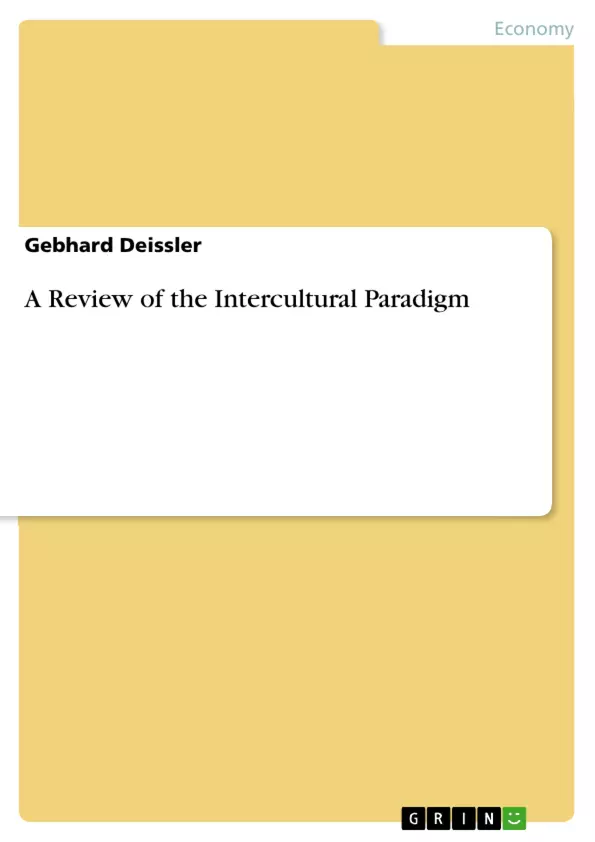As this research comes to its provisional end, after an exploration of the inner-outer horizons of culture in quest for a missing link for its management in line with the requirements of our global, multicultural age in global business, geopolitics and other material and immaterial systems, we may assume that, based on a more complete representation of human nature we are approaching more comprehensive cultural solutions as well. If one succeeds in embedding the intercultural acquis in the holistic structure of man with its naturally beneficial axiomatic for the individual and society, locally, regionally and globally, the hoped for global cultural Eldorado is within human reach, whatever negativity may seem to bar the way. We have extended human cultural awareness so as to understand it within the context of life as a whole, where it reveals itself as a factor of wholistic human identity, evolution and enhanced creativity, unless it is mismanaged due to limited cultural awareness.
Inhaltsverzeichnis (Table of Contents)
- The state of the intercultural art and science: On human relativity in intercultural research
- Enhancing the intercultural art and science: Sources, models and the achievement of supreme cultural intelligence
- Synopsis of inter-/transcultural management instruments : Skills, formulas and techniques
- Inter-/transcultural reference terminology: A terminological resource for the transcultural manager with bilingual definitions and explanations
Zielsetzung und Themenschwerpunkte (Objectives and Key Themes)
This work aims to provide a comprehensive review of the intercultural paradigm, exploring its theoretical foundations, practical applications, and key challenges. It seeks to enhance the understanding of intercultural dynamics and offer practical tools for navigating diverse cultural landscapes.
- The state of the intercultural art and science
- Sources, models and the achievement of supreme cultural intelligence
- Inter-/transcultural management instruments: Skills, formulas and techniques
- Inter-/transcultural reference terminology
- Human relativity in intercultural research
Zusammenfassung der Kapitel (Chapter Summaries)
Chapter 1 delves into the current state of intercultural research, examining the concept of human relativity and its implications for understanding cultural differences. Chapter 2 explores various sources, models, and frameworks for enhancing intercultural understanding and achieving "supreme cultural intelligence." Chapter 3 provides a synopsis of inter-/transcultural management instruments, outlining key skills, formulas, and techniques for effective cross-cultural communication and collaboration. Finally, Chapter 4 presents a comprehensive glossary of inter-/transcultural reference terminology, offering bilingual definitions and explanations for transcultural managers.
Schlüsselwörter (Keywords)
The text explores key concepts such as intercultural competence, cultural intelligence, human relativity, inter-/transcultural management, and diverse cultural frameworks. It emphasizes the importance of understanding cultural differences, building bridges across cultures, and navigating complex cultural landscapes.
- Quote paper
- D.E.A./UNIV. PARIS I Gebhard Deissler (Author), 2011, A Review of the Intercultural Paradigm, Munich, GRIN Verlag, https://www.grin.com/document/181413



